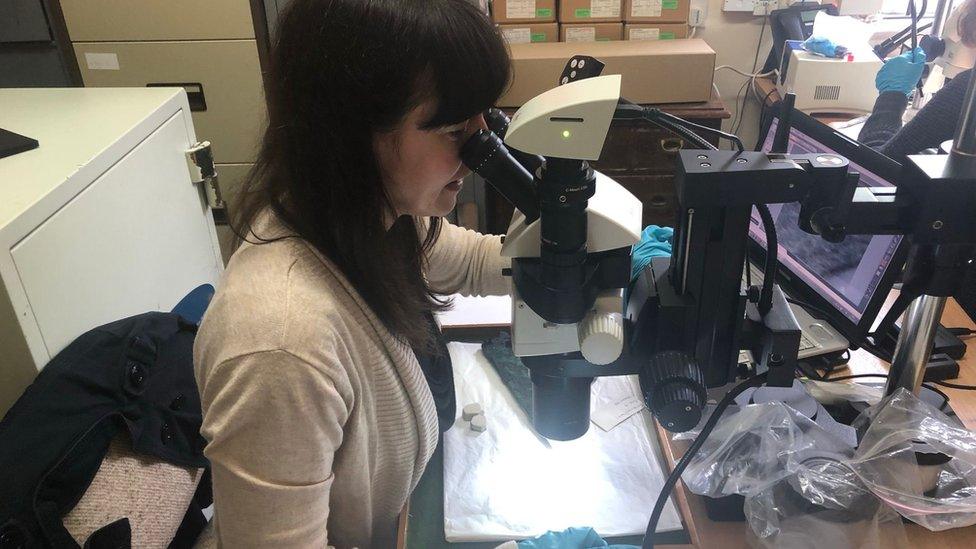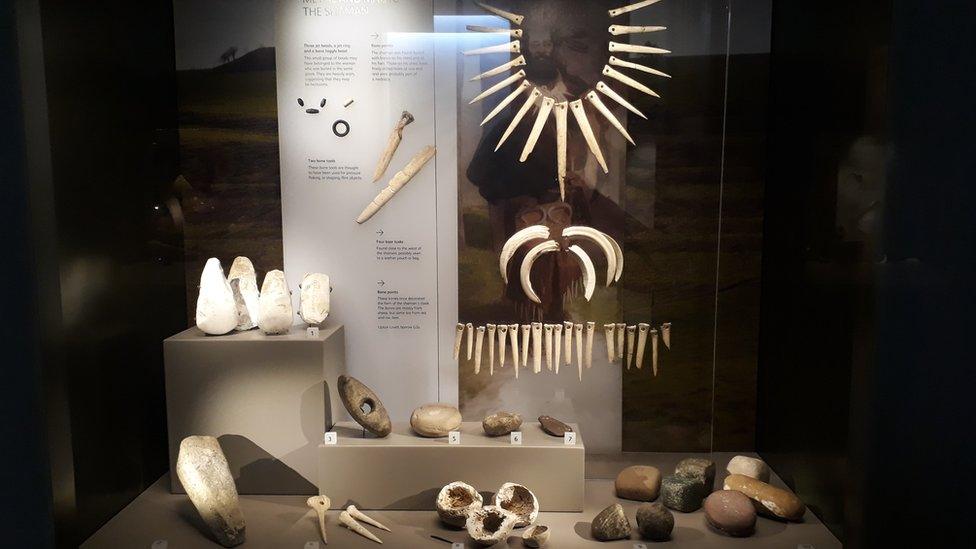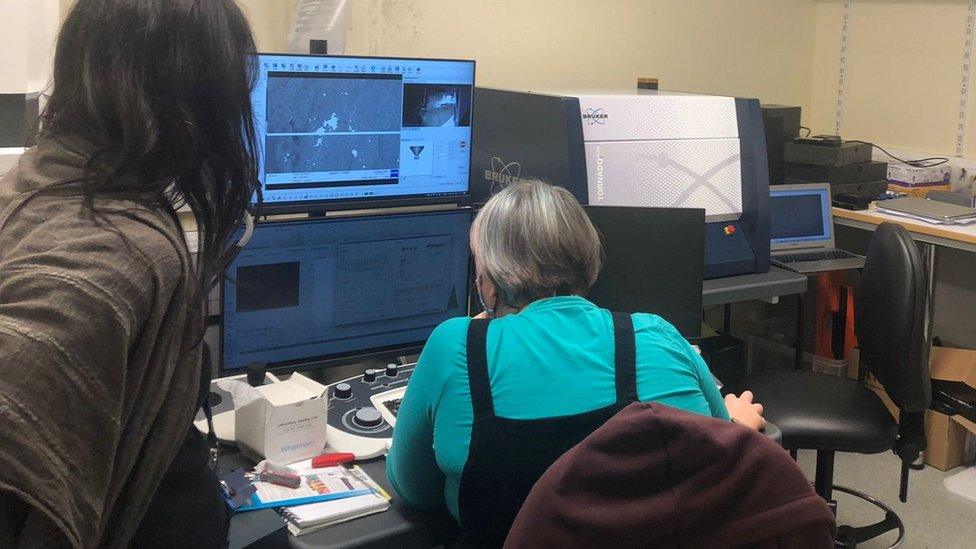Experts claim breakthrough in ancient Stonehenge tool kit puzzle
- Published

The tool kit was found more than 200 years ago but its use was unknown until now
Archaeologists say a 4,000-year-old tool kit found among the grave of a Bronze Age spiritual leader was used for working with gold.
The stone tool kit was found near Stonehenge more than two centuries ago but its use until now has been unknown.
Researchers at the University of Leicester have re-examined grave goods discovered within the burial and found they were gold-working tools.
Lead author Dr Rachel Crellin said the discovery was "really exciting".

The display from the Upton Lovell burial near Stonehenge in Wiltshire Museum
The tools were first found at the Upton Lovell G2a Bronze Age burial, which was excavated in 1801.
They are now on display at the Wiltshire Museum in Devizes where Dr Christina Tsoraki, from the University of Leicester, carried out wear-analysis of the grave goods.
She noticed what appeared to be gold residues on their surfaces and concluded the stone tools had been used for a range of different purposes.
'Highley skilled craftsman'
Some were used like hammers and anvils whereas others had been used to smooth other materials, Dr Tsoraki said.
The University of Leicester also worked alongside experts from the University of Southampton on the project.
The Wiltshire Museum said the man buried at Upton Lovell near Stonehenge, was a "highly skilled craftsman" who specialised in making gold objects.

Researchers at the University of Leicester carried out wear-analysis of the grave goods
The grave also consisted of a ceremonial cloak decorated with pierced animal bones which the museum say hints that he was a "spiritual leader" and one of the few people in the early Bronze Age who understood the magic of metal-working.
Dr Crellin, from the University of Leicester, said "At the recent 'World of Stonehenge' exhibition at the British Museum, we know that the public was blown away by the amazing 4000-year-old goldwork on display.
"What our work has revealed is the humble stone toolkit that was used to make gold objects thousands of years ago."

Follow BBC East Midlands on Facebook, external, Twitter, external, or Instagram, external. Send your story ideas to eastmidsnews@bbc.co.uk, external.